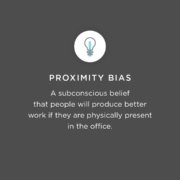Recession And How To Prepare Your Business For It
Many economists predict we will enter a recession in the next few quarters if we’re not in one already. With many businesses still recovering from the effects of the pandemic and memories of the Great Recession of 2008 still fresh in most of our minds, many business owners are not prepared to face another economic recession.
What is a recession?
A recession is a prolonged period of an economic downturn that is both widespread and significant. A period of economic downturn often lasts at least six months or longer. For this reason, an economic recession is often recognized after a country’s gross domestic product declines for two consecutive quarters. According to this definition, the U.S. would currently be experiencing an economic recession.
However, as NPR reported, this is “not an official definition.” Many factors determine whether a country is in a recession, and due to job growth and foreign business investment, “The White House has pushed back against calling the current economy a recession,” NPR also said.
What does it mean to recession-proof your company?
There are two sides to recession-proofing your company. One that most employers are probably familiar with and one that’s too-rarely considered:
Recession-proofing your business is making your organisation economically resistant through actions traditionally thought to shield business during recessions: reducing expenses, scaling back ambitions, and monitoring cash flow to weather the coming storm.
Recession-proofing your workforce refers to maintaining employee morale, motivation and inspiration during economic downturn.
While most companies focus on their bottom line to survive a recession, research on how to help your business survive a recession by Great Place To Work has shown that focusing on employee engagement – particularly diversity and inclusion – helps companies thrive during a recession. In fact, our data shows that companies that value diversity and inclusion outperform other companies by as much as 400%.
1. Manage your cash flow
In easy or difficult economic times, cash is always king. Cash flow, the timing of when money flows into and out of your business, can make or break your company. When times are tough, however, cash flow challenges can be particularly difficult to overcome. With expenses higher than usual and revenue lower than usual, cash will be tight, and balancing your budget could start to feel a bit like a tightrope walk.
To get a handle on your company’s cash flow, look at your current cash flow statement daily, and start forecasting (if you aren’t already) with trailing three-, six- and 12-month cash flow forecast charts. These charts can help you anticipate times when cash is going to be tight, so you can implement strategies to prevent these challenges from occurring.
Additionally, create best- and worst-case scenario budgets that help you better prepare for unforeseen challenges or unexpected triumphs.
2. Proactively embrace your best customers
A recession is a perfect opportunity for you as CEO to strengthen your relationships with your biggest and most important customers. Remember they are feeling the threat of recession as well. Customers always want to meet the CEO of the company they have purchased from so this is an opportunity for you to hit the road, visit customers, and spend time with your salespeople. If you cannot have an in-person meeting, meet on Zoom. If you are uncomfortable selling, get over it. I recently spoke to a founder/CEO with a technical background who told me he “learned to appreciate sales” even though he was uncomfortable selling at first. If you’ve historically thought your time was best spent on product, it’s time to reconsider: In a downturn, your best use of time is talking to customers and making sales.
Remember that it is easier and cheaper to sell more to existing customers than to land new customers. This is especially true in a recession as everyone is taking a second look at all expenses. If you are in a B2B business, visiting customers also gives you real insight into how happy your customers are and whether you are at risk of customer churn. If you run a B2C business, invest in rewards programs and other initiatives to make sure your best customers feel appreciated. Churn risk increases during recessions as companies prioritize their spending and pull back on new initiatives. High churn rates have a direct impact on company valuations. As a CEO you are in the unique position to lead by example and your employees will recognize your effort.
3. Embrace your best employees
Recessions force employees to re-think their career choices. If employees start to doubt the viability of the company, they will take the calls from larger firms in the market — regardless of their equity upside — that can pay more in current income, bonuses, and benefits.
Get ahead of this. Spend time with your best employees making sure you understand their mindset. Employees always assume their equity stake is based on the last round of funding, so down rounds create employee angst. Losing top talent will have a very negative impact on your company. Managing and maintaining your momentum is critical both in terms of retaining your top talent as well as recruiting new talent.
Several times in my career I got ahead of this issue by offering additional stock option grants to top employees to make sure they did not even take the recruitment calls. It works. It’s far easier to get ahead of retaining top talent than it is to try to counter-offer once your employees are entertaining other options.
Recessions are a natural part of the business cycles and companies of all sizes must weather them or wither. Startups face a unique challenge because until they become profitable, they rely on outside capital to fund their growth and evolution to maturity. To make it through and emerge even stronger, conserve cash, and pay close attention to your customers, investors, employees, and culture.
Given our current situation knowing that your colleagues or employees are best suited for this new scenario we find ourselves in. Finding the right talent, the best fit for the job and your organisation can be a very challenging task. It is now important to find out whether your managers or your team is well-equipped of working together from various locations. It requires deep knowledge of their personalities, strengths, weaknesses, interests, work style and other characteristics. Our technology and solutions will do the work for you, helping you discover if your people are resilient during times of hardship, if they are autonomous, if they are team players, without actual human contact. Given that our platform is cloud-based, everyone can use it from home as well. Humanity finds itself at a crossroad for various reasons now, why not help people discover and develop themselves from the comfort of their own homes?
Request a free demo:

Sources:
https://hbr.org/2022/11/5-ways-startups-can-prepare-for-a-recession
https://www.forbes.com/sites/forbesbusinesscouncil/2022/09/01/how-to-prepare-your-small-business-for-a-recession/
https://www.jpmorgan.com/commercial-banking/insights/how-to-prepare-your-company-for-a-recession



 Great People Inside
Great People Inside 






